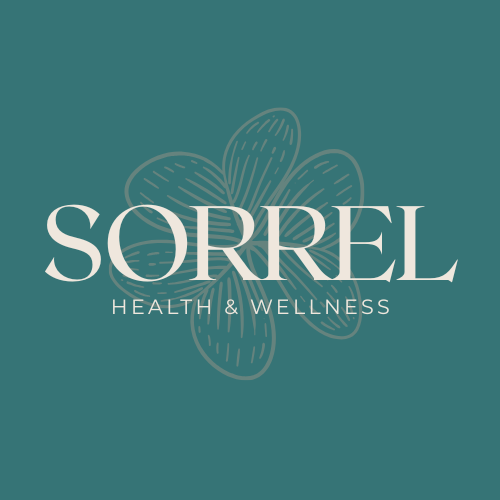Sleep and Muscle Recovery: The Missing Piece for Building Strength in Midlife
- Dr. Meghan Tierney, DABOM

- 2 days ago
- 5 min read
Over the past 3 weeks, we've covered why muscle matters as we age and how to fuel your body with the right nutrition. But here's what I see happening all the time in my practice: women lift weights religiously, hit their protein targets, and still feel frustrated with their progress.
The missing piece? Recovery.

You can have the perfect workout plan and dial in your nutrition, but if you're not prioritizing sleep, rest, and stress management, you're working against yourself.
The Truth About Recovery
Here's something that might surprise you: your muscles don't actually grow during your workout. They grow during recovery.
When you lift weights, you're creating tiny tears in your muscle fibers. It's during the repair process—when you're sleeping, resting, and managing stress—that your body rebuilds those fibers stronger than before.
This is why recovery isn't optional. It's not something to fit in "when you have time." It's as important as the workout itself.
Sleep and Muscle Recovery: Your Secret Weapon
Sleep isn't just about feeling rested—it's a foundational pillar of health that the American Academy of Sleep Medicine and American Heart Association now recognize as essential as diet and exercise for building strength, improving mood, and optimizing metabolism.
Here's what happens during those precious hours of sleep:
For Building Strength and Muscle Recovery: During slow-wave (deep) sleep, your body releases growth hormone, which directly stimulates muscle protein synthesis and tissue repair. Sleep deprivation does the opposite—it shifts your hormonal environment toward muscle breakdown, reducing protein synthesis and impairing your neuromuscular function. Poor sleep literally leads to muscle loss and increased fat accumulation.
For Improving Mood: Both non-REM and REM sleep are essential for emotional regulation and neural recovery. Sleep helps process emotional experiences and consolidate memories. Chronic sleep loss significantly increases your risk of depression and anxiety—something many midlife women are already navigating.
For Improving Metabolism: Sleep regulates the hormones that control appetite, blood sugar, and energy expenditure. During deep sleep, your body increases fat burning and suppresses cortisol (the stress hormone that breaks down muscle). Sleep loss disrupts these processes, impairing glucose tolerance, increasing insulin resistance, and altering the hormones that tell you when you're hungry or full.
There's compelling evidence that improving sleep duration and quality plays a significant role in metabolic health and weight management. Randomized clinical trials in adults who habitually sleep less than 6.5 hours per night have shown that sleep extension—achieved through individualized sleep hygiene counseling—can reduce daily energy intake by approximately 270 calories, resulting in a negative energy balance and modest weight changes, even without changes in physical activity or prescribed diet.
The mechanisms are fascinating:
Appetite regulation: Insufficient sleep increases ghrelin (your hunger hormone) and decreases leptin (your fullness hormone), leading to increased caloric intake
Food cravings: Sleep restriction enhances brain reward centers' response to food cues, promoting preference for energy-dense foods
Metabolic function: Disrupted sleep can impair glucose metabolism and increase insulin resistance
Energy levels: Short sleep duration increases fatigue and can reduce physical activity
The goal: at least 7.5 hours of quality sleep per night.
I know—easier said than done, especially in midlife when hormonal changes can disrupt sleep patterns. But even small improvements can make a difference:
Keep your bedroom cool and dark
Establish a consistent bedtime routine
Limit screens an hour before bed
Consider magnesium or melatonin (talk to your healthcare provider first)
If you're struggling with sleep, don't just push through. Address it as seriously as you would any other health concern. Your muscles, your mood, and your metabolism depend on it.
The 48-72 Hour Rule
You should have 48-72 hours of rest between resistance training sessions for the same muscle groups. This isn't about being lazy—it's about giving your muscles time to repair and grow stronger.
This means if you train your legs on Monday, don't train them again until Wednesday or Thursday. You can still be active during rest days—gentle yoga, walking, train other muscle groups, or light cardio are all great options.
Think of rest days as muscle-building days. That's when the magic happens.
Stress: The Silent Saboteur
Chronic stress is one of the biggest barriers to building muscle that no one talks about. When you're constantly stressed, your body produces cortisol—a hormone that can break down muscle tissue and make it harder to recover.
The evidence is clear: mindfulness-based interventions, relaxation techniques, and physical activity all reduce stress and improve psychological well-being. But I know "just relax" isn't helpful advice when you're juggling work, family, aging parents, and everything else midlife throws at you.
Start small:
Try 5 minutes of deep breathing before bed
Listen to calming music during your commute
Use a meditation app for guided sessions
Prioritize activities that bring you joy, not just productivity
Lean on your social support network—connection is powerful medicine
The Bigger Picture
Building and maintaining muscle as we age is important and particularly challenging as a woman. But remember: this isn't about achieving a "summer body" or fitting into smaller clothes. It's about claiming strength and independence as part of your health journey.
Whether your goal is better energy, improved metabolic health, or building the foundation for independence in the future—muscle matters. And giving your body the recovery it needs is how you honor that investment.
Your Next Steps
If you've been focusing only on the gym and your plate, it's time to expand your view:
Audit your sleep: Track how much you're actually getting for a week
Schedule rest days: Put them in your calendar like any other important appointment
Choose one stress-reduction practice: Pick something that feels doable and start there
Be patient: Recovery improvements take time, just like strength gains
Remember, building muscle isn't just about what you do—it's also about what you don't do. Sometimes the most productive thing you can do is rest.

Want personalized support for your muscle-building journey?
At Sorrel, we help women build strength through a comprehensive approach that includes movement, nutrition, and lifestyle factors like sleep and stress management. We know that sustainable muscle building happens when all the pieces work together.
Whether you're in Seattle, the greater Puget Sound area, or seeking virtual consultations, and whether you're dealing with hormonal changes that affect your recovery, struggling with sleep disruption, or curious about how medical weight management could support your metabolic health goals, we're here to help you create a plan that fits your life.
Ready to build strength from the inside out? Book a discovery call to learn how we can support your journey.
Next , we'll dive into metabolic health and weight management—exploring how your metabolism changes in midlife and what evidence-based approaches can help. Stay tuned.




Comments